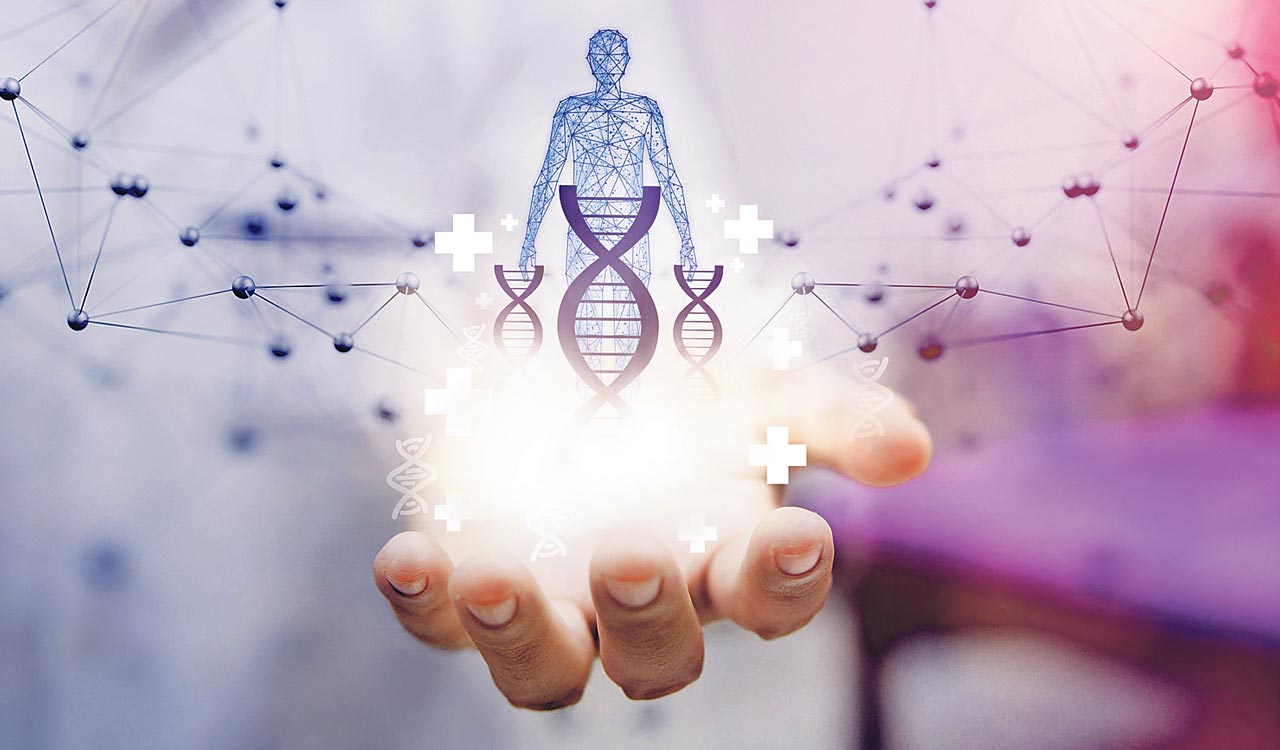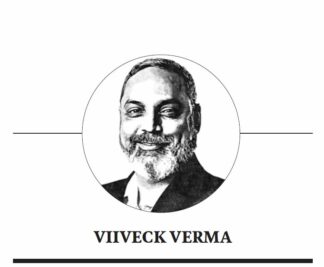Opinion: The Ethical conundrum in genetic testing
The challenge is not just to discover more but to ensure that our discoveries make us better—more ethical, more equitable, and, ultimately, more human

By Viiveck Verma
In the age of extraordinary scientific advancement, the ability to decode our genetic blueprint has brought us face-to-face with profound ethical dilemmas. Genetic testing, once confined to research labs and rare clinical cases, is now a household conversation.
Also Read
Companies like 23andMe and AncestryDNA have transformed complex genetic science into an accessible consumer product, while hospitals and clinics deploy genetic screening to predict, diagnose, and manage diseases. But as our knowledge of the genome expands, so do the moral, social, and philosophical questions: How much should we know about ourselves, and at what cost?
The promise of genetic testing is dazzling. Imagine a world where a simple test could alert you to your predisposition to cancer, diabetes, or Alzheimer’s disease. Parents-to-be can test for hereditary conditions, enabling informed decisions about family planning. In medical contexts, genetic testing is driving the revolution in precision medicine, offering treatments tailored to an individual’s unique genetic code. For families burdened with the uncertainty of undiagnosed disorders, genetic insights can provide answers — and sometimes even hope.
Fine Line
Yet, as enticing as these promises are, genetic testing also illuminates the fine line between knowledge and overreach. The first ethical conundrum lies in the sheer power of this information. Knowing that you have a high probability of developing a debilitating condition may allow you to take preventive measures, but what if no preventive measures exist? What does it mean to live under the shadow of a genetic predisposition, knowing the clock is ticking but unable to stop it?
While this can lead to groundbreaking research, it also opens the door to potential misuse. What’s to stop insurers from demanding access to genetic data and using it to deny coverage or hike premiums?
For many, such knowledge becomes a psychological burden, eroding quality of life rather than enhancing it. Even more troubling is the question of consent. It’s one thing for an individual to willingly undergo testing, but the data doesn’t exist in isolation. A person’s genetic information is, by its very nature, familial. Your genome is 50% identical to your parents’ and siblings’, which means that when you learn about your own risks, you’re also unveiling information about your family members, often without their consent.
For instance, if a woman discovers she carries the BRCA1 mutation associated with a high risk of breast cancer, her siblings and offspring may be impacted by that knowledge. Should she share the results with them? Does she have a moral obligation to do so? And what if they don’t want to know?
Another contentious arena is the rise of prenatal genetic testing. On the one hand, it can be a gift to parents, enabling them to prepare for a child with specific health challenges. On the other hand, it can lead to a slippery slope where genetic ‘perfection’ becomes the unstated goal.
Some parents might feel pressured to terminate pregnancies based on probabilities rather than certainties, creating a moral quagmire about whose lives are deemed “worth” living. In countries like Iceland, where prenatal genetic testing for Down syndrome is common, the birth rate of children with the condition has plummeted, a fact that some celebrate and others view as eugenics by another name. The ethical challenges extend beyond the individual and familial to the societal and systemic.
Data is Currency
Genetic testing is inherently tied to data, and data is currency. Who owns the information contained in your DNA? Many direct-to-consumer companies reserve the right to share anonymised genetic data with third parties, including pharmaceutical companies. While this can lead to groundbreaking research, it also opens the door to potential misuse. What’s to stop insurers from demanding access to genetic data and using it to deny coverage or hike premiums? What prevents employers from discriminating based on a worker’s genetic predispositions? Laws like the Genetic Information Nondiscrimination Act (GINA) in the United States provide some protections, but the global landscape is inconsistent, leaving many vulnerable.
And then there is the spectre of ‘designer genetics’. The line between therapeutic interventions and enhancement is a blurry one. If we can edit genes to eliminate hereditary diseases, it’s a logical next step to consider editing for traits like intelligence, athletic ability, or physical appearance. But who decides which traits are desirable? The wealthy? Corporations? Governments?
The idea of a genetically enhanced elite ruling over the ‘natural-born’ masses once seemed like the stuff of dystopian fiction, but advances in technologies like CRISPR make it a very real possibility. As tempting as it is to believe that science will guide us to a brighter future, history suggests otherwise. Human beings have a poor track record of handling power responsibly, especially when it intersects with profit motives or societal biases. The eugenics movement of the early 20th century, with its chilling attempts to improve the human race through forced sterilisations, should serve as a cautionary tale. While today’s genetic science is infinitely more sophisticated, the underlying questions about power, control, and inequality remain unresolved.
Guiding Principles
What, then, should be our guiding principles as we navigate these murky waters? First and foremost, the right not to know is as important as the right to know, particularly when the knowledge in question comes with significant psychological or social consequences. Informed consent must be sacred, and this includes ensuring that individuals understand not only what genetic testing can reveal but also its limitations and potential repercussions.
We also need robust regulatory frameworks that evolve alongside genetic technologies. The speed at which the field is advancing far outpaces our ability to legislate, leaving gaps that bad actors can exploit. This means strict rules about data privacy, safeguards against discrimination, and limits on the use of genetic editing technologies.
Finally, we must grapple with the philosophical questions raised by genetic testing. What does it mean to know oneself? How do we balance individual autonomy with collective responsibility? What kind of future do we want to build, and who gets to decide? Genetic testing is, in many ways, a mirror. It reflects not just the biological truths encoded in our DNA but also the societal values we choose to uphold. In this age of unparalleled genetic insight, the challenge is not just to discover more but to ensure that our discoveries make us better—more ethical, more equitable, and, ultimately, more human.

(The author is founder and CEO, Upsurge Global, co-founder, Global Carbon Warriors and Adjunct Professor, EThames College)
Related News
-
Wild bison falls into agricultural well in Karimnagar, rescued
3 mins ago -
Maoist area committee member surrenders before Kothagudem police
4 mins ago -
Women secure 13 of 19 chairperson posts in Medak municipal polls
4 mins ago -
Telangana archery team named for Tribal Sports Meet in Delhi
10 mins ago -
BV Raju Institute students’ ProteinX wins at OpenAI x NxtWave Buildathon
10 mins ago -
Hyderabad: Seminar on sports medicine, psychology on February 20
11 mins ago -
Madhusudhan Linga wins singles title at Abu Dhabi Masters Games
11 mins ago -
Hyderabad beat Saurashtra by three wickets in women’s one-day tie
15 mins ago




